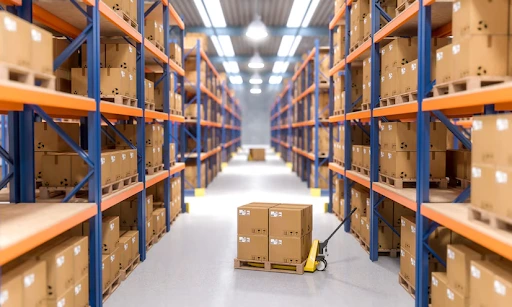.webp)
In today's fast-paced and interconnected world, the efficient functioning of complex systems and projects is paramount. Be it in the realms of defense, aerospace, manufacturing, or even in everyday civilian operations, the need for seamless coordination, maintenance, and sustainment of equipment and systems has never been more critical.
This is where Integrated Logistics Support (ILS) steps in as a crucial framework, ensuring the smooth operation and longevity of these systems. However, due to the growing complexity of modern technologies and the ever-evolving demands of global markets, the concept of Integrated Logistics Support has undergone significant transformation and expansion over the years.
This comprehensive guide will delve into the definition of ILS, its components, benefits, and lifecycle in detail.
Integrated Logistics Support (ILS) is a comprehensive approach to managing and supporting complex systems throughout their lifecycle, from design and development to disposal. Its primary goal is to ensure that a system operates effectively and efficiently while minimizing the total cost of ownership. ILS encompasses various elements, including planning, design, acquisition, testing, training, maintenance, and disposal.
An example of ILS can be seen in the defense industry. When a military organization acquires a new weapon system, ILS ensures that all aspects of its support are considered. This includes designing the system for ease of maintenance, establishing a supply chain for spare parts, providing training to personnel, and planning for eventual system upgrades or decommissioning.
By integrating these logistical considerations into the system's design and management, ILS aims to maximize its operational readiness, minimize downtime, and reduce overall life-cycle costs, ultimately enhancing mission effectiveness and supportability.

Here are the components of Integrated Logistics Support:
Involves developing strategies for maintaining the system, including preventive maintenance schedules, maintenance procedures, and resource allocation for maintenance activities. The goal is to reduce downtime and ensure optimal system performance.
Focuses on managing the logistics of spare parts, components, and consumables required for system operation and maintenance. It includes inventory management, procurement, and distribution to ensure that the necessary materials are available when needed.
Refers to all the documentation and information required to design, operate, maintain, and support the system. This includes technical manuals, specifications, engineering drawings, and other documentation necessary for personnel to effectively manage and support the system.
Involves training personnel to operate, maintain, and troubleshoot the system effectively. It includes developing training programs, providing hands-on training using training devices or simulators, and ensuring that personnel are adequately skilled to perform their roles.
Support and test equipment are tools, instruments, and devices used to diagnose, test, calibrate, and maintain the system. These tools are essential for ensuring that the system operates correctly and can be quickly repaired in the event of a malfunction.
Focuses on the proper packaging, handling, storage, and transportation of the system and its associated components. It ensures that the system and its parts are protected from damage during storage and transit and that they can be easily moved and deployed when needed.
Here are the top benefits of implementing Integrated Logistics Support in your business:

The key phases in the Integrated Logistics Support lifecycle are explained below.
The future of Integrated Logistics Support (ILS) promises remarkable advancements driven by technology and industry trends. Artificial intelligence and data analytics will revolutionize predictive maintenance, optimizing equipment lifecycles and reducing downtime. Augmented reality will enhance training and troubleshooting, while blockchain ensures transparent and secure supply chain management.
Furthermore, companies delegate ILS functions to a specialized partner to gain cost-efficiency and specialized expertise. It also enables access to a global talent pool of logistics professionals, reducing in-house operational costs and capital expenditures. Invensis is a global leader in delivering supply chain and logistics BPO services. With over two decades of industry experience, we have consistently surpassed client expectations and set benchmarks for excellence.
Reach us today to transform your supply chain with our world-class logistics BPO services.
Blog Category

Adding products to your store is easy with our guide on how to upload products in BigCommerce. Follow these steps for a seamless upload experience.
April 17, 2025
|

Managing accounting in restaurants involves meticulous tracking of expenses, revenue, and inventory to ensure financial health and operational efficiency. Read our detailed guide now!
April 17, 2025
|

Inventory risks can cause inventory management to go sideways. Learn about the different types of inventory risks, their impacts and how to deal with them effectively.
April 17, 2025
|
